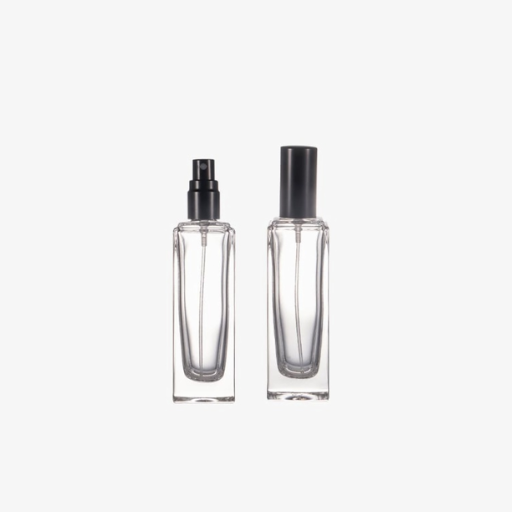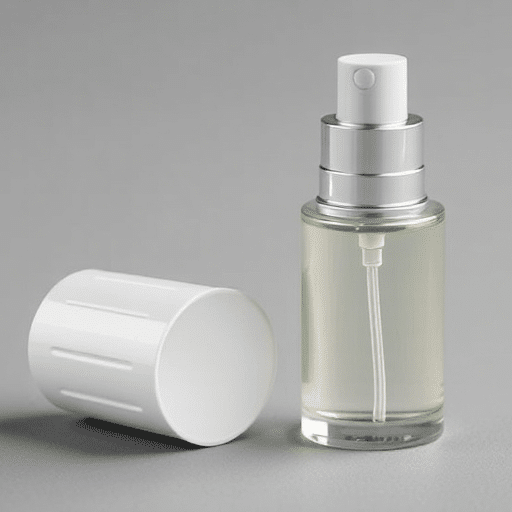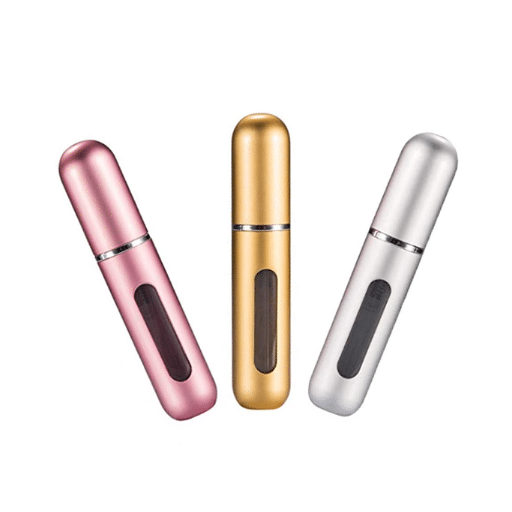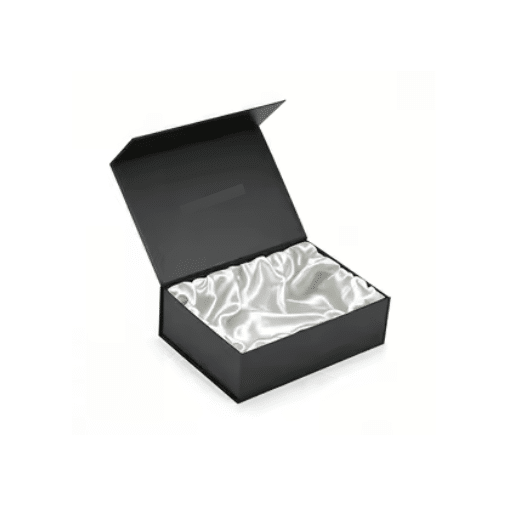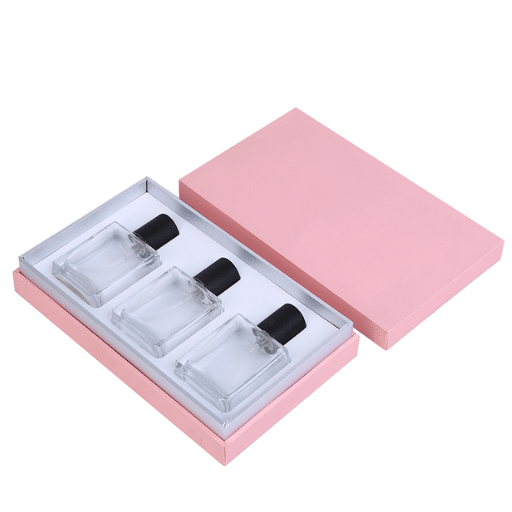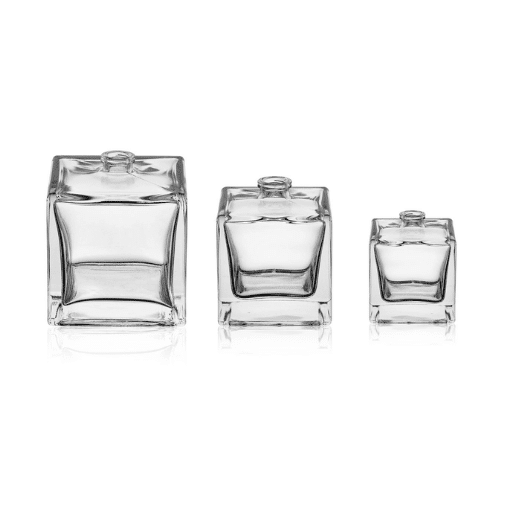Perfume bottle sizes can be surprisingly perplexing for both novice enthusiasts and seasoned collectors. With a variety of options ranging from compact travel-friendly bottles to statement-worthy designer flacons, understanding what each size represents is essential for making informed choices. This guide is designed to demystify the world of perfume bottle sizes, with a particular focus on the popular 50ml format. Whether you’re comparing value, planning for travel, or simply curious about how long your signature scent will last, this article provides the insights you need. By the end, you’ll feel confident in navigating bottle sizes and selecting the one that best suits your needs.
What Is a 50ml Perfume Bottle and Why Choose It?
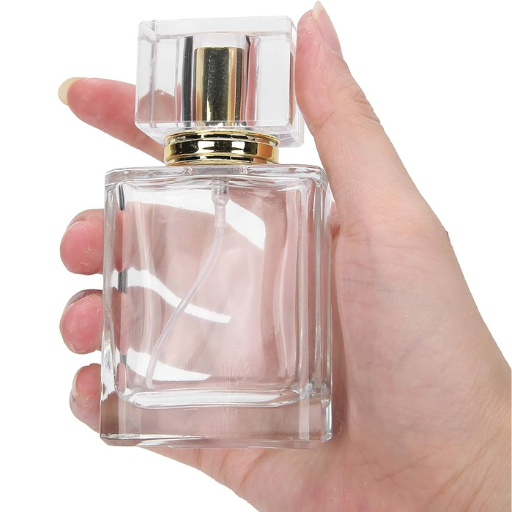
A 50ml perfume bottle contains approximately 1.7 fluid ounces of fragrance, making it a standard and widely purchased size in the perfume industry. This size offers a practical balance between portability and longevity, typically lasting several months with regular use. It is ideal for individuals who want to explore a scent without committing to a larger quantity while ensuring enough product for an extended period. Additionally, the 50ml size is convenient for travel and complies with most airline liquid restrictions, making it a versatile choice for everyday use and on-the-go lifestyles.
Advantages of a 50ml Perfume Size
- Portability: The 50ml size is compact and lightweight, making it easy to carry in handbags or travel cases without adding significant bulk.
- Airline-Friendly: It adheres to most international airline liquid regulations, making it an ideal choice for frequent travelers.
- Cost-Effectiveness: Offers a practical price point for consumers, providing an affordable way to experience high-quality fragrances without overspending.
- Extended Usage: With proper application, a 50ml bottle can last for several months, offering excellent longevity for everyday wear.
- Trial Opportunity: Allows users to explore and evaluate a fragrance over time before committing to larger, more expensive bottle sizes.
Comparing 50ml with Other Perfume Bottle Sizes
Perfume bottle sizes commonly include 30ml, 50ml, 75ml, 100ml, and 200ml, each catering to different usage preferences, budgets, and needs.
|
Size |
Uses |
Portability |
Longevity |
Price Range |
Ideal For |
|---|---|---|---|---|---|
|
30ml |
Travel |
High |
1-2 months |
Low |
New testers |
|
50ml |
Daily wear |
Moderate |
3-4 months |
Medium |
Everyday |
|
75ml |
Regular use |
Moderate |
5-6 months |
Mid-High |
Frequent use |
|
100ml |
Home use |
Low |
7-9 months |
High |
Loyal users |
|
200ml |
Bulk use |
Low |
10+ months |
Very High |
Long-term |
Is 50ml the Right Perfume Bottle Size for You?
When deciding if a 50ml perfume bottle is the right size for me, I start by considering my usage habits. If I wear perfume daily and prefer switching scents periodically, the 50ml size is ideal due to its balance of quantity and portability. It typically lasts three to four months with regular use, making it a practical option for daily wear without the risk of it going stale. Additionally, it provides enough volume to be cost-effective while remaining compact enough for easy storage or travel. Based on these factors, the 50ml size is an excellent choice for versatile and consistent usage.
How Long Does 50ml Perfume Last?
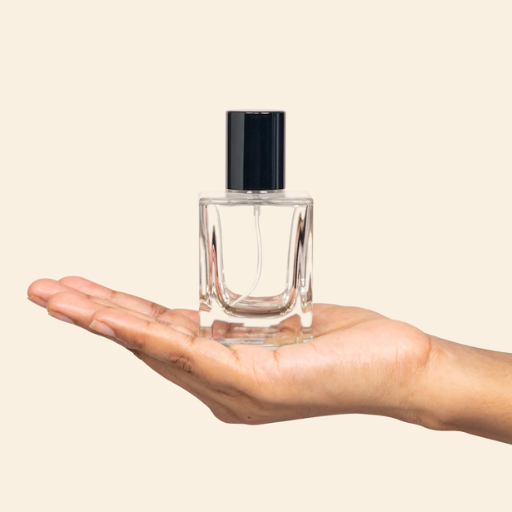
A 50ml perfume bottle will last differently depending on one’s application habits. Generally speaking, 50ml bottles contain around 700 to 750 sprays, which averages out to be around one hundred uses if used daily. If used once or twice a day, the bottle will last around three to six months. Individual habits towards using the fragrance, including but not limited to concentration (Eau de Parfum vs Eau de Toilette), as well as temperature and storage conditions, can impact the overall lifespan of the perfume within the bottle.
Factors Affecting Perfume Longevity
- Skin Type
Perfume longevity is significantly influenced by an individual’s skin type. For example, oily skin tends to retain fragrance longer due to the natural oils that help lock in the scent, while dry skin may cause the fragrance to evaporate more quickly.
- Fragrance Concentration
The concentration of aromatic compounds in a perfume determines its staying power. Higher concentrations, such as Eau de Parfum (EDP), contain more fragrance oil compared to Eau de Toilette (EDT) or cologne, resulting in prolonged scent retention.
- Application Method
The way perfume is applied plays a crucial role in its longevity. Spraying on pulse points, such as the wrists, neck, and behind the ears, ensures the fragrance is warmed by body heat, which activates and sustains the scent over time.
- Environmental Conditions
Temperature, humidity, and air exposure can impact how long a perfume lasts. Warm climates may promote faster evaporation, while cooler conditions can preserve the fragrance for more extended periods.
- Storage Practices
Proper storage of a perfume bottle is essential in maintaining its quality and longevity. Fragrances should be kept in a cool, dark place away from direct sunlight, heat, and fluctuating temperatures to prevent degradation of the scent.
Usage Tips to Extend Your 50ml Perfume Life
- Apply to Pulse Points
Apply perfume to pulse points such as the wrists, neck, behind the ears, and the inner elbows. These areas emit heat, which helps to project the fragrance. Avoid rubbing the perfume after application, as friction can break down its molecular structure, reducing its longevity.
- Moisturize Before Application
Applying perfume to hydrated skin enhances its performance. Use an unscented lotion or moisturizer on the skin before spraying, as this helps to lock in the fragrance. Dry skin tends to absorb the perfume faster, causing it to dissipate more quickly.
- Use the Right Amount
For optimal results, 2–4 sprays are generally sufficient. Overuse can overwhelm the olfactory receptors, while underuse minimizes the fragrance’s effectiveness.
- Avoid Spraying on Clothes
It is best to avoid spraying perfume directly onto clothing or jewelry, as the composition of fabrics and materials may alter the chemical structure of the fragrance, leading to discoloration or diminished scent quality over time.
- Limit Exposure to External Factors
Apply perfume after a shower when your skin is clean and slightly damp, as this creates an ideal surface for retention. Avoid exposing the scent to UV light, sweat, or extreme humidity after application, since these factors can accelerate evaporation or molecular breakdown.
By following these best practices, you ensure that your 50ml perfume lasts longer while maintaining its intended scent profile.
Comparing Longevity of 50ml Versus 100ml Perfume Bottles
When comparing the longevity of 50ml versus 100ml perfume bottles, factors such as usage frequency, storage conditions, evaporation rate, and personal habits play crucial roles. Below is a concise summary of key parameters:
|
Parameter |
50ml Bottle |
100ml Bottle |
|---|---|---|
|
Usage |
Faster use |
Slower use |
|
Storage Space |
Compact |
Bulky |
|
Evaporation |
Higher risk |
Lower risk |
|
Cost-Effect |
Lower |
Higher |
|
Portability |
Easier |
Harder |
|
Duration |
Shorter |
Longer |
Guide to Perfume Bottle Sizes: From 10ml to 100ml
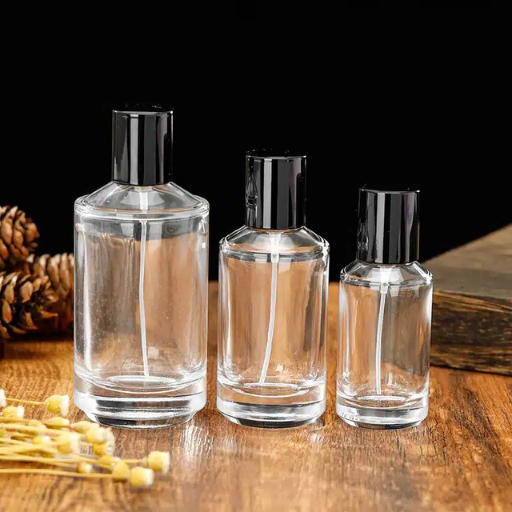
Key Considerations for Choosing a Bottle Size
- What is the most portable option for travel?
The 10ml or 50ml bottle sizes are the most portable. They fit easily into bags or luggage and comply with most airline carry-on liquid restrictions.
- Which size is best for daily use?
A 50ml bottle strikes a balance between portability and longevity, making it ideal for daily use without taking up too much space.
- How do longevity and cost-effectiveness correlate with size?
Larger bottles, such as 100ml, are generally more cost-effective in terms of price-per-milliliter and last significantly longer than smaller options.
- Are there concerns about evaporation or fragrance stability?
Smaller bottles, like 10ml or 50ml, have a higher risk of evaporation if not sealed properly, while 100ml bottles offer improved stability and a lower evaporation rate.
- Which size should I choose if I like to try many fragrances?
Opting for smaller sizes, such as 10ml, allows for easier experimentation with multiple scents before committing to a larger bottle.
Understanding Different Perfume Bottle Sizes
When deciding on the most suitable perfume bottle size, it is essential to consider your usage habits, lifestyle, and fragrance collection preferences. Perfume bottles, commonly available in sizes like 5ml, 10ml, 30ml, 50ml, and 100ml, each serve different purposes.
- For frequent travelers or on-the-go use: Smaller sizes, such as 5ml or 10ml, are ideal for portability and convenience. They fit easily into bags or pockets and are TSA-compliant, making them the perfect companion for travel.
- For individuals who enjoy trying various scents: Miniatures, typically 5ml or 10ml sizes, enable you to explore and experiment with a wide selection of fragrances without committing to a significant financial investment. This approach also minimizes the risk of wasting larger bottles if a scent is not a long-term favorite.
- For single or signature scent enthusiasts: The 50ml or 100ml sizes are more economical and ensure that the fragrance will be used well over an extended time. These sizes work best when you have a signature scent that you wear every day.
- Consider fragrance longevity and storage: Perfumes stored in larger bottles always last longer and are more economical, though they need to be stored correctly in order to maintain their quality- keeping the bottle out of light and heat is crucial as these elements undermine scents. On the other hand, more compact sizes limits oxidation chances through swift use.
By balancing ease, trying new things, and durability, a choice aligning with one’s fragrance habits and preferences can be achieved.
Choosing the Right Perfume Bottle Size for Your Needs
When choosing the right perfume bottle size, I first consider how often I plan to use the fragrance. For daily wear, a larger bottle makes sense as it’s more economical and lasts longer. However, for occasional use or trying something new, I lean toward smaller bottles or travel sizes to minimize waste and oxidation. I also think about storage needs—keeping perfume in a cool, dark place helps preserve its quality, especially for larger bottles that take longer to finish. Ultimately, it depends on my personal usage habits and how much variety I like in my collection.
Common Perfume Bottle Sizes and Their Uses
Perfume bottles typically come in 1, 5, 10, 15, 30, 50, 100, and 200 mL sizes, catering to a range of preferences and usage needs.
|
Size (mL) |
Usage |
Portability |
Lifespan |
Ideal For |
|---|---|---|---|---|
|
1 |
Sampling |
Highly portable |
Very short |
Testing scents |
|
5 |
Travel |
Very easy |
Short |
On-the-go |
|
10 |
Travel |
Easy |
Moderate |
Frequent use |
|
15 |
Travel/Gift |
Reasonable |
Moderate |
Variety lovers |
|
30 |
Moderate |
Convenient |
Average |
Casual use |
|
50 |
Everyday |
Fair |
Long |
Regular use |
|
100 |
Investment |
Bulky |
Very long |
Signature scent |
|
200 |
Bulk-buy |
Heavy |
Extended |
Heavy users |
How to Choose the Right Perfume for Your 50ml Bottle
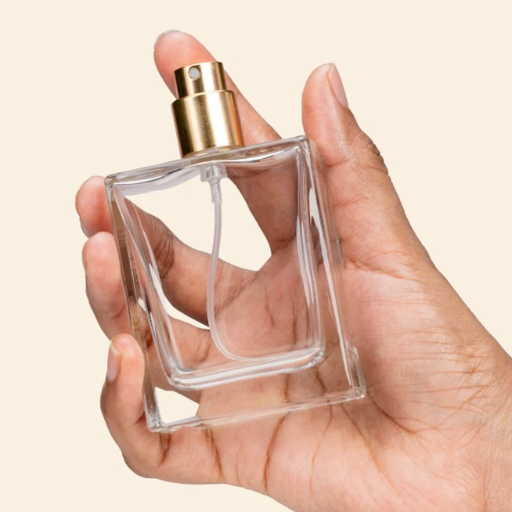
When selecting the perfect perfume for your 50ml bottle, consider your usage frequency, scent preferences, and lifestyle. A 50ml size is ideal for regular use, offering a balanced amount without being overly bulky. Focus on versatile scents that suit both daily wear and special occasions. Evaluate the strength of the perfume—Eau de Parfum offers a good balance of longevity and potency for everyday wear, while lighter Eau de Toilette options may feel less intense.
Additionally, think about the season and setting in which you intend to wear the perfume. Fresh, citrusy, or floral scents are well-suited for warmer weather, while richer, woody, or gourmand notes perform excellently in colder seasons. Aim for a fragrance that complements your personal style while providing enough versatility for a variety of uses. By blending practicality and preference, you can confidently select a perfume that maximizes the value of your 50ml bottle.
Matching Fragrance with Bottle Size
When choosing a perfume matching your lifestyle and needs, bottle size plays a crucial role in ensuring practicality and satisfaction. A 50ml bottle is often regarded as a versatile option, offering a balance between portability and longevity. For individuals who rotate fragrances frequently or enjoy seasonal scents, this size allows for a manageable investment while enabling variety.
For daily wear, a 50ml bottle typically lasts 3 to 6 months, depending on application habits. If you prefer occasional use or reserve fragrances for special events, this size may extend over a year. Keep in mind that fragrance intensity (e.g., eau de parfum or eau de toilette) also influences consumption rate, as stronger concentrations require fewer sprays.
Additionally, consider the storage lifespan of fragrances. While most perfumes maintain their quality for 2 to 3 years with proper storage—cool, dark environments away from direct sunlight—choosing a smaller size prevents wastage if you plan to explore multiple scents. Evaluating your routine, preferences, and the characteristics of the fragrance will guide you toward selecting the perfect bottle size for your collection.
Why 50ml is a Popular Choice for New Fragrances
When it comes to new fragrances, I find that 50ml is an incredibly practical choice for several reasons. This size offers a balance between value and versatility—large enough to provide a decent number of applications but small enough to minimize waste if a scent doesn’t work for me or if I want to rotate between multiple options. Additionally, 50ml bottles are often easier to store and travel-friendly, fitting comfortably in most bags or toiletry cases. For someone exploring new scents, this size feels like the perfect middle ground to enjoy variety without overcommitting.
Tips for Selecting Your Next 50ml Perfume
- Understand Your Scent Profile
Take the time to identify the fragrance families you gravitate towards, such as floral, woody, oriental, or citrus. Understanding your personal preferences can narrow down your options and ensure you choose a perfume that resonates with your tastes.
- Consider the Season and Occasion
Evaluate when and where you intend to wear the perfume. For instance, lighter, fresher scents like citrus or aquatic notes are ideal for warm months and casual settings, while richer, deeper fragrances, such as amber or oud, suit colder weather or formal occasions.
- Test Before You Commit
Whenever possible, test the perfume on your skin instead of relying solely on smell strips. Body chemistry plays a critical role in how a fragrance develops and lingers over time. Allow yourself at least a few hours to assess whether the scent remains appealing.
- Research Longevity and Projection
A perfume’s staying power and sillage (how far a scent diffuses around you) are essential factors. Look into reviews or consult with store professionals to ensure the fragrance meets your expectations for durability and reach.
- Prioritize Quality Ingredients
High-quality perfumes often use well-sourced and expertly blended ingredients, resulting in a more complex and pleasant olfactory experience. Be mindful of overly synthetic fragrances, as they may lack depth or cause discomfort after prolonged use.
Exploring Glass Perfume Bottles and Spray Perfume Options
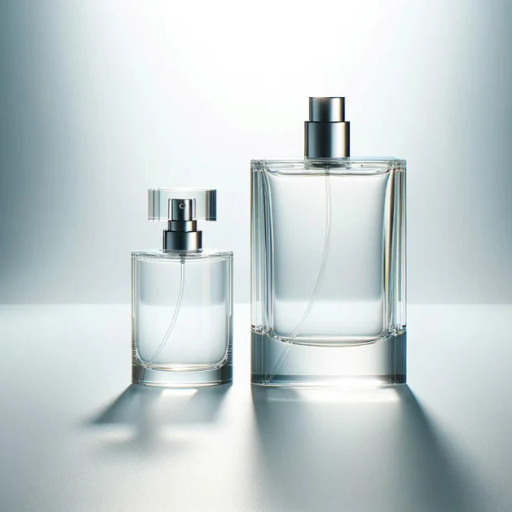
When exploring glass perfume bottles and spray perfume options, it is crucial to consider factors that balance functionality, aesthetics, and practicality. Glass perfume bottles are often preferred for their durability and ability to preserve the integrity of the fragrance, as glass is inert and does not react with the perfume’s composition. They are available in a variety of designs, catering to both high-end luxury and simple, minimalistic aesthetics.
Spray perfumes, on the other hand, provide an efficient and evenly distributed application, reducing waste and ensuring consistent use. Additionally, spray mechanisms contribute to better hygiene, as the fragrance is dispensed without direct contact. When selecting between these options, consider the frequency of use, storage conditions, and the purpose — whether for personal collection, travel, or gifting. Each choice has its unique advantages that can fulfill different preferences or needs.
Benefits of Glass Perfume Bottles
- Preservation of Fragrance Integrity: Glass bottles provide an excellent barrier against external elements such as air and moisture, which helps to preserve the chemical composition and longevity of the perfume’s scent.
- Resistance to Chemical Reactions: Unlike some plastic containers, glass does not interact with the perfume’s ingredients, ensuring that the fragrance’s quality remains unchanged over time.
- Environmental Sustainability: Glass is a recyclable material, making it an eco-friendly option that reduces plastic waste and supports sustainable packaging efforts.
- Aesthetic Appeal: Glass bottles offer a premium and luxurious appearance, often incorporated into elegant designs that enhance the visual identity of the fragrance brand.
- Durability Against Degradation: Glass is highly resistant to UV rays and temperature fluctuations, preventing the perfume from deteriorating due to environmental factors.
Choosing Between Spray and Non-Spray Bottles
When choosing between spray and non-spray bottles, I evaluate the functionality, preservation, and user experience. Spray bottles are ideal for precise, even application and protect the liquid from exposure to air, helping preserve the fragrance’s integrity. On the other hand, non-spray bottles offer more control for those who prefer dabbing or custom mixing, but they may expose the fragrance to air, which can affect its longevity. Ultimately, my decision depends on how I prioritize convenience, preservation, and personal application preferences.
Reference Sources
- A Comprehensive Guide to Perfume Bottle Sizes – Uzone Packaging
- Exploring Perfume Bottle Sizes: A Comparative Analysis – Jarsking
- Somewang Guide to Perfume Bottle Sizes
- How Big is 100ml Perfume? – Be Layered Blog
- Perfume Bottle Sizes: A Comparative Analysis and Size Chart – WRL Bottle
Frequently Asked Questions (FAQs)
Q: What is the standard size for a perfume bottle?
A: The standard sizes for perfume bottles are typically 30 ml, 50 ml, and 100 ml. These sizes are widely available and offer various options for consumers depending on their needs and preferences.
Q: How do I choose the right perfume bottle size for my needs?
A: Choosing the right size depends on how often you use the perfume and how many different fragrances you like to have. If you like variety or are trying a new scent, a 30 ml or mini perfume bottle might be ideal. For daily use of a favorite fragrance, a 50 ml or 100 ml bottle could be more economical.
Q: Can you explain the perfume bottle size chart?
A: A perfume bottle size chart helps in understanding the various sizes available, typically ranging from 10ml mini bottles to larger sizes like 100 ml. It often includes the equivalent in fluid ounces (fl oz) and provides a guide to select the perfect size for your needs.
Q: What are the benefits of using a 50 ml perfume bottle?
A: A 50 ml bottle is a versatile size, offering a balance between portability and quantity. It is large enough to last for an extended period when used regularly, yet small enough to carry in a handbag for touch-ups throughout the day.
Q: Why are some perfumes available in limited edition sizes?
A: Limited edition sizes are often released as part of special collections or collaborations. They can come in unique packaging or different concentrations of perfume, appealing to collectors and fragrance enthusiasts who enjoy exclusive or rare offerings.
Q: How do perfume oils differ in bottle size compared to eau de parfum?
A: Perfume oils are typically sold in smaller bottles than eau de parfum due to their higher concentration of fragrance. While eau de parfum might be available in larger sizes like 50 ml or 100 ml, perfume oils often come in smaller bottles, such as 10ml minis, due to their potency and application method.
Q: What should I consider about the strength of the fragrance when selecting a perfume bottle size?
A: The strength of the fragrance can affect how much and how often you need to apply it. Stronger scents in high concentrations, like parfum, may last longer on the skin, requiring less frequent application, while lighter scents might necessitate larger bottles for regular use.
Q: How does proper storage of perfume affect its longevity?
A: Proper storage is crucial for maintaining the quality and longevity of perfume. Keep bottles away from direct sunlight, heat, and humidity to prevent degradation. A stable, cool, and dry environment ensures that fragrances remain fresh and potent, regardless of bottle size.

